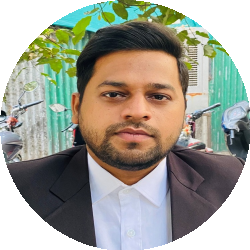MEDICAL PROFESSION AND ETHICS IN INDIA
The medical profession in India can broadly be divided into four main systems of treatment: Allopathy, Homeopathy, Ayurveda, and Unani (Hekimi). Among these, allopathy, or modern medicine, is the most widely used because it is highly effective in emergencies. For example, if someone suffers a heart attack or is injured in a road accident, allopathic medicine and surgery can save the person’s life within minutes, something that other systems may not be able to provide so quickly. The Indian Constitution guarantees every citizen the Right to Life, and this includes the right to medical treatment. When a person falls sick, it is their personal choice whether to opt for allopathic, homeopathic, ayurvedic, or unani treatment. Doctors cannot force a patient to accept only one system of medicine. For instance, a cancer patient may choose chemotherapy in an allopathic hospital, while another may rely on Ayurvedic remedies and lifestyle changes. Both choices must be respected because the right to treatment is also the right to choose. Most people today are thankful for the medical services they receive from both government and private hospitals. However, there are times when patients have faced negligence or even tragic outcomes due to wrong diagnosis, unnecessary surgeries, or careless treatment. To protect patients, the Medical Council of India regulates medical services, and healthcare is also covered under the Consumer Protection Act. This means that if a doctor is found guilty of negligence, they may face punishment under the Indian Penal Code and also be required to compensate the patient for their loss. For example, if a surgeon leaves an instrument inside a patient’s body after surgery, the patient has every right to seek justice in court. One of the most important parts of the doctor-patient relationship is confidentiality. A doctor must not reveal personal information about a patient’s health to others without permission. If someone is suffering from diabetes or mental health issues, for example, the doctor cannot share this with their employer or neighbors. However, there are exceptions when public safety is at risk. If a disease is highly contagious, such as tuberculosis or HIV/AIDS, doctors may have to inform health authorities or even a patient’s spouse to prevent harm to others. The Supreme Court has also ruled that if one spouse suspects the other of having AIDS, they have the right to know the truth, as it affects their own right to life. Every visit to a doctor creates an implied contract. The moment a doctor agrees to treat a patient, they take on a legal duty to use reasonable care and skill. If they fail to do so, they may be held liable for damages. This includes malpractice such as wrong blood transfusions, unnecessary surgeries, or revealing professional secrets. For instance, if a doctor performs surgery only to earn money, without real need, it can be treated as a serious breach of trust and law. Medical ethics also extend to how doctors treat their colleagues. They are expected to show respect and avoid unfair criticism. For example, it is considered unethical for a doctor to say, “Don’t go to Dr. X, he doesn’t know anything.” Such remarks damage trust in the profession and are discouraged by medical ethics. Doctors also have duties towards the state. They are required to attend court if summoned, and must inform the police if they come across cases of poisoning, stabbing, or gunshot wounds. Similarly, if a doctor discovers food poisoning from a restaurant or encounters a notifiable disease such as cholera or swine flu, they must report it to public health authorities. Doctors are also responsible for officially reporting births and deaths. These duties ensure that public health and justice are maintained. The Code of Medical Ethics guides doctors in their professional conduct. For example, a doctor should not charge fees from fellow doctors or their family members. They should not take over a patient already being treated by another doctor without proper reason. They must never refuse treatment based on religion or social background. And, in times of public health crises such as epidemics, they must step forward to serve society. The oldest code of medical ethics is the Hippocratic Oath, which has now been updated as the Declaration of Geneva. In India, every doctor has to sign this declaration at the time of registration, promising to serve with honesty and compassion. Any violation of this oath is treated as professional misconduct. We saw the true spirit of this oath during the COVID-19 pandemic, when doctors and health workers risked their lives every day to save patients, showing selfless dedication to their duty. In conclusion, the medical profession in India is one of the noblest fields of service, but it also comes with serious responsibilities. Doctors must uphold ethics, maintain trust, and balance their duties towards patients, colleagues, and the state. At the same time, patients should be aware of their rights and responsibilities. When both sides act with respect and understanding, the healthcare system becomes stronger, fairer, and more humane. Reference Book: Law And Medicine by Dr. Nandita Adhikari
Author

Adv. ALOK KUMAR
Comments are not allowed on this article.

 YouTube
YouTube



 Print
Print
 April 01 2022
April 01 2022



